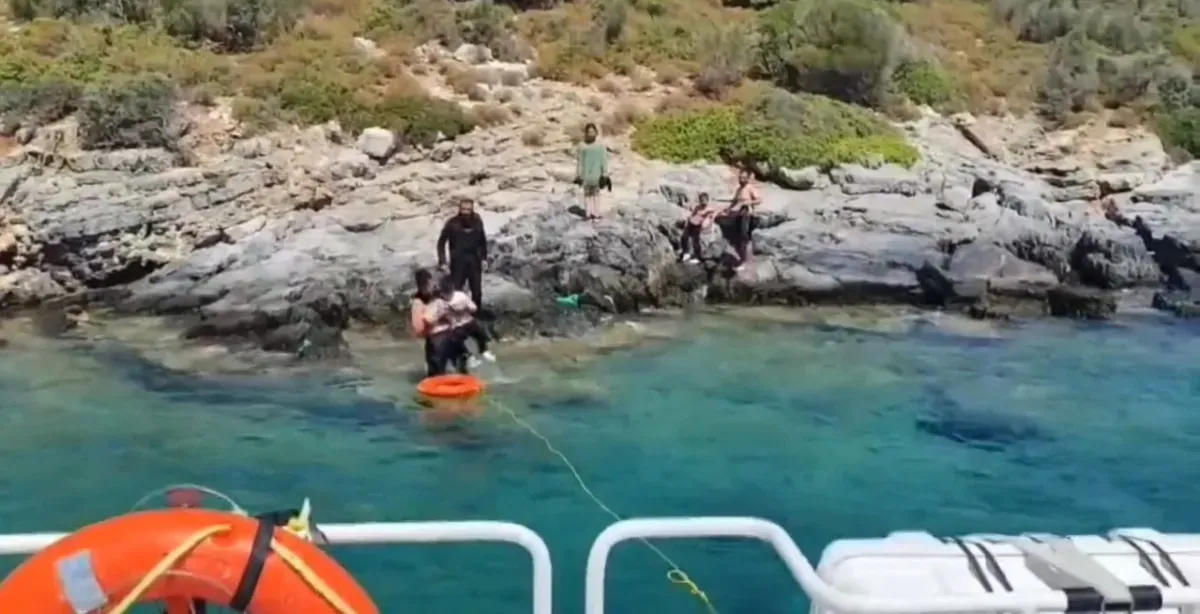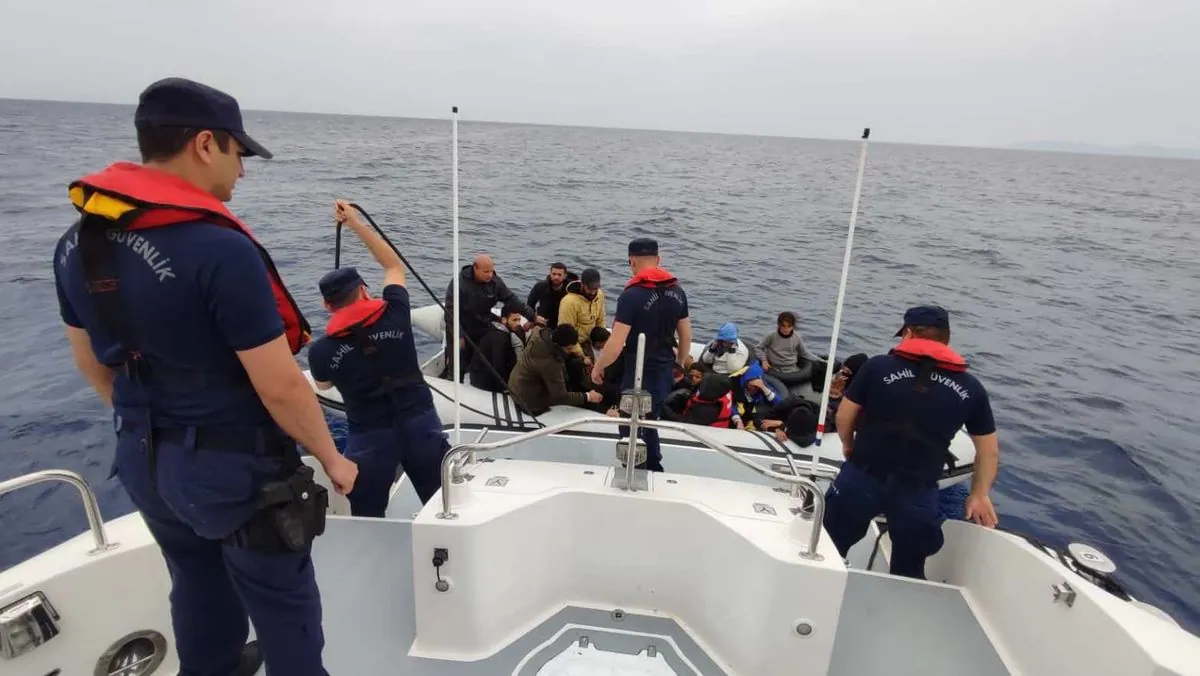Migrant Rescues in Greek Waters: One Dead, Dozens Saved
Multiple rescue operations in the Aegean Sea save nearly 100 migrants. One woman dies in capsized dinghy near Kos, while others are rescued from boats near Gavdos and off southwestern Greece.

In a series of maritime incidents, Greek authorities conducted multiple rescue operations in the Aegean Sea, resulting in the salvation of nearly 100 migrants. Tragically, one woman lost her life when a dinghy capsized near the island of Kos.
The Greek Coast Guard reported that a vessel carrying 16 individuals overturned in rough seas southeast of Kos, close to the Turkish coast. Fifteen people were successfully rescued, while an unresponsive woman was retrieved from the water. Two survivors required medical attention at a local hospital.
In a separate incident, 78 individuals were saved from a wooden boat in distress south of Gavdos, Greece's southernmost island. The rescued migrants were subsequently transported to Crete, the largest Greek island.
These events followed a previous day's rescue operation where approximately 70 migrants were saved from a yacht off the southwestern coast of Greece. The merchant ship that conducted the rescue was directed to bring the migrants to Kalamata, a significant port in the Peloponnese peninsula.

The Aegean Sea, an extension of the Mediterranean between Europe and Asia, has long been a critical route for migrants attempting to reach Europe. Its complex coastline and numerous islands make it a challenging area for both migrants and rescue operations. The Greek Coast Guard, established in 1919, plays a crucial role in patrolling these waters and conducting rescue missions.
Smuggling operations in this region typically involve overcrowding small vessels with dozens of migrants. Each passenger often pays thousands of dollars for the perilous journey. The routes vary, with some aiming for nearby Greek islands, while others attempt the longer and more dangerous passage to Italy through the central Aegean.
The proximity of some Greek islands to the Turkish coast, sometimes just a few kilometers apart, has made this area a focal point for irregular migration. However, the Aegean's unpredictable weather conditions pose significant risks to these often ill-equipped vessels.
International organizations such as the United Nations High Commissioner for Refugees (UNHCR) and the European Border and Coast Guard Agency (Frontex) are actively involved in addressing the complex issues surrounding migration in this region. Their efforts are complemented by maritime laws requiring vessels to assist others in distress at sea.
As Greece continues to be a major entry point for those seeking to enter the European Union, the country faces ongoing challenges in managing these maritime arrivals while ensuring the safety of those attempting the dangerous crossings.
"Our primary focus remains the preservation of life at sea. We urge all individuals to refrain from undertaking these perilous journeys and to seek legal and safe pathways for migration."
The recent incidents underscore the ongoing humanitarian crisis in the Mediterranean, which has been one of the world's busiest migration routes in recent years. As weather conditions in the Aegean can change rapidly, the risks to small vessels remain high, necessitating constant vigilance and readiness for rescue operations.
While the nationalities of the migrants involved in these recent rescues were not immediately disclosed, many attempting these sea crossings often come from conflict-affected countries in the Middle East and Africa. The European Union continues to grapple with developing effective policies to address irregular migration while ensuring the safety and dignity of those seeking refuge.


































